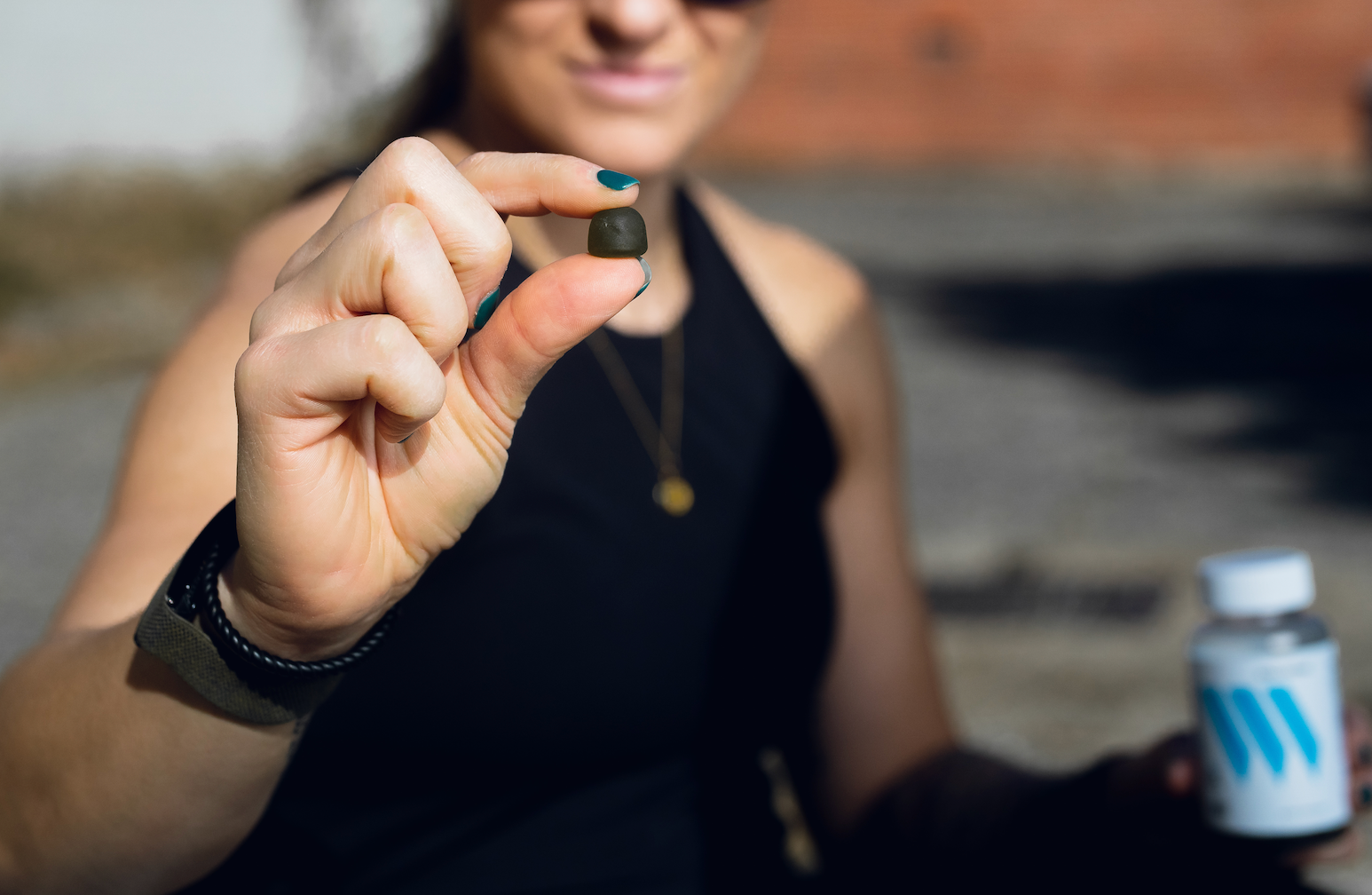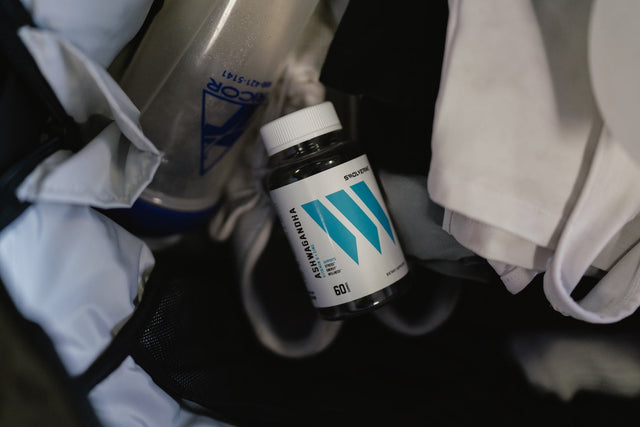In the hectic journey of motherhood, finding safe and effective solutions can be a game-changer. Incorporating ashwagandha into your breastfeeding routine may offer a natural way to navigate stress and support your overall well-being. In this comprehensive guide, we unveil everything you need to know to ensure a seamless integration of this potent herb into your daily life, without compromising the health of your little one. From its ancient roots in Ayurveda to the latest scientific research, we delve into the benefits, potential risks, and best practices for moms looking to harness the power of ashwagandha.
Empower yourself with the knowledge and confidence to make informed decisions for both you and your baby, as we demystify the complexities surrounding this revered adaptogen. Let's embark on this journey together towards holistic wellness for you and your little one.
Here is your updated and fully formatted article with Header 1 and Subheader 2 structure, enhanced SEO content, linked citations to relevant research, and all original content preserved.
Is Ashwagandha Safe for Breastfeeding Mothers?
Ashwagandha (Withania somnifera), a revered adaptogenic herb in traditional Ayurvedic medicine, has garnered global attention for its stress-reducing, mood-enhancing, and immune-boosting properties. Naturally, many breastfeeding mothers wonder whether incorporating this herb into their wellness routine is safe for both themselves and their babies.
Current evidence suggests that ashwagandha may be generally considered safe during breastfeeding, but it's crucial to approach its use with caution and medical guidance. Every individual's physiology is different, and what supports one mother’s postpartum wellness may not suit another’s needs.
Limited Scientific Evidence on Ashwagandha and Breastfeeding
The safety of ashwagandha use specifically during lactation has not been extensively studied in clinical trials. While anecdotal evidence and traditional practices support its use, these do not replace rigorous scientific data. A 2021 review published in Nutrients acknowledges the herb’s potential for stress reduction and immune modulation, but notes the absence of data in breastfeeding populations (Tiwari et al., 2021).
Given this lack of conclusive research, healthcare professionals advise erring on the side of caution, particularly because substances ingested by the mother can transfer to breast milk. Individualized consultation with a doctor, naturopath, or registered dietitian is highly recommended before beginning any new supplement while nursing.
Monitor for Side Effects and Infant Reactions
Ashwagandha's adaptogenic effects may support postpartum wellness by alleviating anxiety, fatigue, and sleep disturbances. However, side effects such as drowsiness, gastrointestinal discomfort, or appetite changes have been reported in some users. For breastfeeding mothers, these changes could affect milk production, feeding schedules, or overall comfort.
Potential Risks and Precautions of Using Ashwagandha While Breastfeeding
Possible Side Effects for Mothers
While ashwagandha is generally well tolerated, some individuals may experience:
-
Digestive upset (bloating, nausea, diarrhea)
-
Sedative-like effects (especially in high doses)
-
Hormonal changes due to its effect on the endocrine system
These potential reactions are important to note, especially for breastfeeding women managing energy levels, emotional health, and hormonal balance in the postpartum period.
Potential Effects on Infants
The transfer of herbal compounds through breast milk is a well-documented concern. While no published studies have measured ashwagandha levels in breast milk, some experts caution against use due to unknown infant exposure levels. According to the American Academy of Pediatrics, most herbs lack safety data for use during breastfeeding, including ashwagandha (AAP, 2019).
What to Watch For:
-
Unusual infant drowsiness or lethargy
-
Digestive upset
-
Changes in feeding patterns or latch
If any of these occur, discontinue use immediately and consult your pediatrician.
Interactions with Medications
Ashwagandha may interact with:
-
Thyroid medications
-
Immunosuppressants
-
Sedatives or anti-anxiety drugs
-
Blood pressure or blood sugar medications
If you are taking prenatal vitamins, iron, omega-3s, or other postpartum supplements, mention your interest in ashwagandha to your healthcare provider to avoid interactions.
Recommended Dosage of Ashwagandha During Breastfeeding
General Adult Dosage Guidelines
For general health and wellness, typical dosages of ashwagandha root extract range from:
-
300 mg to 500 mg taken once or twice daily
-
Standardized to 5% withanolides, the active compound
However, there is no established dosage for breastfeeding mothers, which is why starting with the lowest effective dose and observing closely is highly recommended.
Consult with a Professional for Personalization
A qualified practitioner can help you:
-
Choose the appropriate form (capsule, powder, or tincture)
-
Adjust based on body weight, hormonal health, and postpartum goals
-
Monitor for side effects and adjust dosage accordingly
Recording your daily usage, mood, energy, and baby’s reactions in a supplement journal can be a useful way to track changes and optimize your approach.
Pay Attention to Supplement Quality
Not all supplements are created equal. Choose products that:
-
Are third-party tested for purity and potency
-
Are free from fillers, heavy metals, and contaminants
-
Disclose standardized withanolide content
One reputable source of high-quality adaptogens is Swolverine's supplement line, which offers transparency and clean ingredient profiles tailored to athletic and wellness-conscious consumers.
Ashwagandha may offer meaningful support for stress, sleep, and recovery in the postpartum period—but its use during breastfeeding requires a personalized, cautious approach. While traditional wisdom supports its benefits, scientific evidence is still emerging, and individual responses can vary greatly.
To recap:
✅ Potential Benefits: Stress reduction, improved mood, immune support
⚠️ Potential Risks: Unknown infant effects, drug interactions, mild side effects
🩺 Best Practice: Consult your healthcare provider before use
As always, your health and your baby's well-being come first. Stay informed, choose clean supplements, and never hesitate to seek professional guidance.
Related Articles
5 Amazing Benefits Of Ashwagandha
Adaptogens and Stress Management in Women’s Health – Cleveland Clinic, 2022
Ashwagandha: Herbal Medicine for the Modern Mother – National Center for Biotechnology Information
Ways to Incorporate Ashwagandha into Your Daily Routine While Breastfeeding
Ashwagandha can be seamlessly woven into your daily wellness routine, even as a busy breastfeeding mother. Its adaptogenic benefits—particularly for stress relief and energy support—can be especially helpful during the postpartum period. Here are several practical and safe ways to include this ancient herb in your lifestyle.
Supplement Options: Capsules, Gummies, or Powders
The most straightforward method of taking ashwagandha is through a dietary supplement. These come in various forms, including:
-
Capsules: Easy to integrate into your morning or evening routine. Follow the dosage provided by your healthcare professional or as listed on the label.
-
Gummies: A convenient and tasty option, especially if you’re not a fan of swallowing pills.
👉 Recommended Product: Swolverine Ashwagandha Gummies -
Powders: Versatile and easy to mix into drinks, smoothies, or meals.
Always opt for third-party tested products to ensure purity and potency, especially while breastfeeding.
Herbal Teas and Warm Elixirs
Ashwagandha root powder can be stirred into warm water or milk to create a calming, tea-like elixir. Many new mothers enjoy a nighttime drink made with:
-
1 tsp ashwagandha powder
-
Warm oat or almond milk
-
A dash of cinnamon or honey for taste
This soothing beverage may help reduce evening stress and support better sleep (Lopresti et al., 2019).
Smoothies and Oatmeal Additions
Add a scoop of ashwagandha powder to:
-
Morning smoothies
-
Protein shakes
-
Overnight oats or oatmeal
This method helps mask the slightly bitter flavor and enhances the nutritional value of your meals, especially when paired with iron-rich or protein-dense ingredients that support postpartum recovery.
Cooking With Ashwagandha
Ashwagandha can also be added in small amounts to:
-
Soups and stews
-
Homemade energy bites or granola bars
-
Baked goods, such as muffins or pancakes
Be mindful of cooking temperatures, as high heat can degrade the active compounds, particularly withanolides, which are responsible for ashwagandha’s therapeutic effects (Tiwari et al., 2021).
Benefits of Ashwagandha for Postpartum Health
Ashwagandha provides a variety of benefits that may be particularly helpful during the postpartum period, when hormonal fluctuations, emotional shifts, and fatigue are common challenges for new mothers.
1. Reduces Stress and Cortisol Levels
Adaptogens like ashwagandha help regulate cortisol, the body’s primary stress hormone. Elevated cortisol is linked to:
-
Anxiety
-
Fatigue
-
Disrupted sleep
-
Mood swings
By promoting hormonal balance, ashwagandha may help improve mood, reduce overwhelm, and support mental well-being in the early months of motherhood (Chandrasekhar et al., 2012).
2. Improves Energy and Endurance
Many breastfeeding mothers report persistent fatigue. Ashwagandha has been shown to support:
-
Mitochondrial function
-
Endurance and physical performance
-
Daytime energy levels
Clinical research has also demonstrated its benefits in enhancing VO2 max and stamina (Wankhede et al., 2015), making it valuable for moms juggling daily tasks and newborn care.
3. Promotes Postpartum Recovery
Ashwagandha contains antioxidants and immune-modulating properties that may:
-
Support the body’s recovery from childbirth
-
Strengthen immune response
-
Aid in tissue healing and cellular repair
This makes it a supportive ally during a time when the immune system may be slightly compromised.
👉 Related Article: Ashwagandha Benefits on Hormonal Balance
Research and Studies on Ashwagandha and Breastfeeding
Current Research Landscape
While ashwagandha has a rich history in Ayurvedic medicine, scientific studies on its effects during breastfeeding are still limited. Most existing studies focus on its general health benefits, including:
-
Stress and anxiety reduction
-
Sleep improvement
-
Immune support
More targeted clinical trials are needed to evaluate its effects on milk supply, milk composition, and infant outcomes. Until then, recommendations for use during breastfeeding remain based on traditional use and emerging evidence (Low Dog, 2009).
Ashwagandha and Lactation
There is anecdotal support for ashwagandha potentially aiding lactation, but the data remains inconclusive. Herbalists may recommend it for overall postpartum vitality, but medical professionals urge caution due to the lack of safety data for infants.
Further studies on how herbal constituents like withanolides affect breast milk and neonatal development are warranted before ashwagandha can be universally recommended for nursing mothers.
Alternative Herbs and Supplements for Breastfeeding Mothers
If you're seeking natural ways to support your body during lactation, here are some other well-researched options.
1. Fenugreek
A widely used galactagogue, fenugreek is known to:
-
Promote milk production
-
Improve milk flow
-
Work synergistically with blessed thistle
Available in capsules, teas, or seeds, it’s one of the most studied herbs for breastfeeding mothers (Swafford & Berens, 2000).
2. Milk Thistle & Blessed Thistle
These herbs support liver health and hormonal balance, essential in the postpartum period. Blessed thistle, specifically, is often combined with fenugreek to enhance lactation.
3. Omega-3 Fatty Acids
Omega-3s support:
-
Brain development in infants
-
Mood regulation in mothers
-
Cardiovascular health
👉 Recommended Product: Swolverine Krill Oil
4. Probiotics
Postpartum gut health is crucial for both mom and baby. Probiotics can:
-
Enhance digestion
-
Reduce inflammation
-
Support immune health
Consultation with Healthcare Providers Before Using Ashwagandha
Before adding ashwagandha to your daily regimen, especially during lactation, it is essential to speak with your healthcare provider.
Personalized Recommendations
Your doctor or lactation consultant can help you:
-
Assess potential interactions with medications or other supplements
-
Determine the appropriate dosage and form
-
Monitor for side effects or infant reactions
Collaborative Approach to Safety
Open communication ensures your supplement routine supports—not disrupts—your breastfeeding goals. Be transparent about:
-
Current medications
-
Any supplements (prenatal, postnatal, herbal, or multivitamins)
-
Symptoms or concerns you may have
Healthcare providers can also help establish a safe timeline for introducing or adjusting herbs, ensuring the best outcomes for you and your baby.
Conclusion: Making Informed Decisions for a Healthy Breastfeeding Routine
Incorporating ashwagandha into your breastfeeding routine can offer numerous benefits, from reducing stress to enhancing energy levels. However, it is crucial to approach its use with caution, considering the potential risks and consulting healthcare professionals. By being informed and proactive, you can create a balanced approach that prioritizes the health and well-being of both you and your baby.
As with any supplement, individual responses may vary, and what works for one mother may not be suitable for another. It is essential to listen to your body and monitor how ashwagandha affects your breastfeeding experience. Keeping a journal of your observations can aid in understanding its impact and adjusting your approach as necessary.
Ultimately, the journey of motherhood is unique for every woman. By empowering yourself with knowledge about ashwagandha and other holistic approaches to postpartum health, you can make informed decisions that align with your values and wellness goals. Embrace the journey, prioritize your health, and enjoy the beautiful experience of breastfeeding with confidence.
Ready To Add Some Ashwagandha To Your Nutrition Routine?
Concentrated from 750mg of Ashwagandha root Swolverine’s Ashwagandha Gummies are a non-GMO, vegan formula with added Vitamin D and Zinc to reduce stress and improve the overall quality of life. Stress, whether chemical, physical, or biological can leave you feeling exhausted, speed up the aging process, and send your hormones into a frenzy. But wouldn’t it be nice if you could ease your mind and give your body a biological boost? Ashwagandha is an adaptogen, and studies show that adaptogens can help you combat long-term physical and mental stress, ease depression, and improve sleep. Keep calm and de-stress with Swolverine’s Ashwagandha Supplement Gummies.
Find similar articles:
Supplements












